How does the body know when to do anything? There are thousands of complex processes going on in your body at any given time, and you have important hormones to thank for this.
Hormones are responsible for signaling the start and end of important processes, like increasing appetite or building muscle. But if they’re not functioning properly, either because of your diet or lifestyle, your health can be at risk.
There are over 50 hormones in the human body. Obviously we can’t look at all of them in one go. Instead, I’m going to break down six of the most important hormones that are crucial for good health and explain how Paleo affects them.
Struggling to lose weight? Unable to focus? Chances are, your hormones are out of whack.
Grab Our FREE Guide To Fixing Your Hormones By Clicking Here!
1. Insulin

When you eat, particularly carbohydrates, your blood sugar levels typically rise. In a healthy person, these levels never reach dangerous amounts because of insulin.
The elevated blood sugar signals beta cells to release insulin into your blood. The insulin then binds to cells, which allows glucose (sugar) to enter the cells and be used for energy. Think of insulin as a gatekeeper that is needed for sugar to leave the bloodstream.
Why Insulin is Important for Good Health
Without insulin, glucose can’t leave the bloodstream. In some cases, a person cannot produce enough insulin, or becomes insulin-resistant, which means that insulin loses its ability to remove sugar from the bloodstream.
Sound familiar? That’s because this is diabetes.
A type 1 diabetic has damaged beta cells, so insulin can’t be created or stored. That’s why they need insulin injections after meals.
A type 2 diabetic can make insulin, but either in insufficient amounts, or it can’t function effectively. In the second case, this leads to not only a blood sugar buildup, but an insulin buildup as well. Insulin, in normal amounts, is a good thing.
It is one of a few hormones (that we’ll visit soon) that help regulate appetite. However, large amounts of insulin (Hyperinsulinemia) lead to weight gain (1). There are 3 main mechanisms of why this happens, but it’s fairly complicated. I’d encourage you to read that paper published by Dr. Lustig if you are interested.
Wondering why being diabetic is so bad? High blood sugar and insulin resistance can cause a wide variety of serious health consequences (2):
- Atherosclerosis
- Kidney disease or kidney failure, requiring dialysis
- Strokes
- Heart attacks
- Vision loss or blindness
- Weakened immune system, with a greater risk of infection and more…
Insulin and the Paleo Diet
Almost all those problems cause insulin resistance. Your goal should be to increase your insulin sensitivity, or maintain it at a healthy level.
Studies show that the most effective way to improve insulin sensitivity is through a low-carbohydrate diet (3)(4).
A Paleo diet may be a low-carbohydrate one, but not always. Regardless, most Paleo diets will contain a significantly smaller amount of carbohydrates than most standard Western diets.
PaleoHacks conducted an interview with a type 1 diabetic, Nick. After years of living as a diabetic on a typical diet, he eventually gave Paleo a shot after some extensive research and thought.
His results were fantastic, as his hba1c levels declined from 8 to 5.6, or 30% in just 6 months. Hba1c is essentially a measure of your average blood glucose level for the last 3 months. In plain old English, this is a huge improvement.
Insulin sensitivity really goes hand in hand with carbohydrate intake, which makes a Paleo diet fairly ideal for the vast majority of people.
2. Leptin
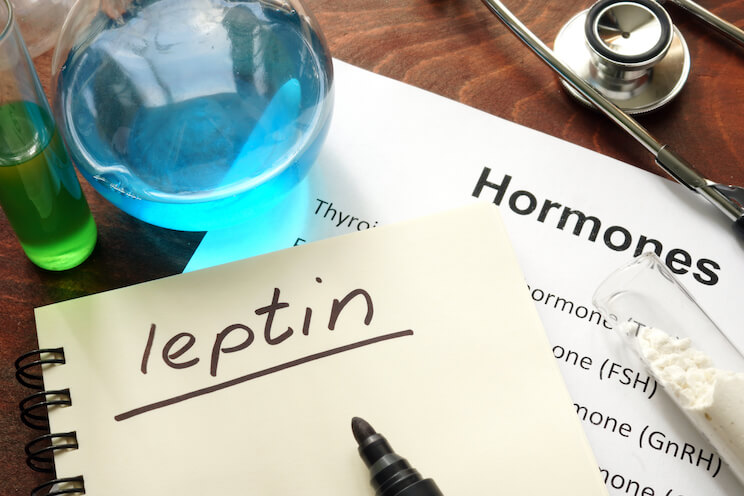
When you eat, leptin levels rise, and your appetite starts to wane. It does a few other things that affect fertility, immunity, and brain function, but leptin’s role in appetite control is the most important (5).
Leptin’s Role in Good Health
Some believe that weight loss and body fat levels are all about willpower, while others think it’s a combination of genetics and hormones. While it might be impossible to prove the exact proportions, the answer is likely both.
While making good nutritional decisions is a big part of it, so is being satisfied by a correct amount of food.
If you are healthy, leptin tells your brain that you have sufficient fat stored away for a rainy day. If your stores are “full”, there’s no point in eating much more and your appetite is suppressed.
Since leptin controls your levels of fat storage, it makes sense that obese people have more leptin (6). But wait, shouldn’t that make them want to eat less?
It should, but it doesn’t – something is broken. Many obese people are leptin resistant (7).
Here’s the problem: Once you are leptin resistant, your brain can’t interpret the leptin signals as it should. Even though there is a ton of leptin in your bloodstream, it doesn’t think there is (8). This causes obese people to eat past the point of where they should be satiated, which just continues this vicious negative cycle.
Leptin and the Paleo Diet
We don’t know if obesity causes leptin resistance, or if leptin resistance causes obesity (9).
Either way, it’s a problem.
The science is still far from complete on the mechanism(s) behind developing leptin resistance. The most likely causes are inflammation (that leads to neuron injury), genetic factors, lifestyle, and diet (10).
We can’t do anything about genetic factors, but we can control diet and inflammation.
Inflammation: It can be caused both by a poor diet and stressful lifestyle. We’ve known for a while that stress can lead to weight gain, so leptin resistance due to inflammation is just one possibility.
Diet: Here’s where the Paleo diet comes in. Paleo is generally an anti-inflammatory diet because it lacks processed sugars. In addition, almost all Paleo diets will have an adequate amount of protein. A relatively high-protein diet can improve leptin sensitivity (11).
Lifestyle: In addition, early studies show that exercise improves leptin sensitivity (12). If you fully embrace a Paleo/primal lifestyle, you’ll end up moving more. Also, less sleep lowers your leptin levels, which can artificially raise the amount of food you need to eat to be satisfied (13).
In the case of leptin and leptin resistance, diet is just one part of the solution, but the Paleo diet can be a part of improving or maintaining leptin sensitivity.
3. Glucagon

Insulin is created, stored, and released by beta cells in the pancreas. Glucagon is created, stored, and released by alpha cells in the pancreas.
Where insulin prevents fat mobilization, glucagon promotes it in order to conserve blood glucose while it tells the liver to release glucose.
Glucagon’s Role in Good Health
While we understand the function and mechanisms of glucagon, it isn’t studied nearly as much as insulin because major issues are rare (14).
The best way to think about it is that insulin is easy to “force” to produce, simply by overeating carbohydrates. There’s really no way of forcing glucagon to be overproduced in a healthy individual.
To become glucagon resistant, you need to have some sort of condition. If insulin levels are too high in diabetics, they can block glucagon from being released, which can lead to hypoglycemia (low blood sugar) in certain situations (15).
As far as glucagon and good health go, maintaining good insulin sensitivity should take care of most practical concerns. And as we already discussed, the Paleo diet is very suitable as a diet to improve or maintain good insulin sensitivity.
4. Cortisol

But like all other hormones, cortisol plays a very important role in your physiology. In fact, without cortisol, you and I might not be here today.
Why You Need Cortisol
When you stress (usually physically), your blood sugar drops fairly quickly. While glucagon will attempt to raise that, cortisol is there to help out. Adrenal glands produce cortisol to accelerate protein breakdown and begin gluconeogenesis (GNG).
GNG is simply the process of making sugar from various byproducts, including those of protein.
In addition, cortisol also signals fat cells to start releasing stored fat to be used for energy, thereby conserving blood glucose. In most situations, cortisol and glucagon are part of the same team.
So now, your body elevates the amount of sugar in your bloodstream. This is great if you need quick access to energy in highly stressful times; maybe running away from a man-eating dinosaur or bear.
All kinds of stress can trigger cortisol release:
- weight lifting
- sprinting
- mental stress (like worrying about money, jobs, etc.)
- getting injured
And in the short-term, it’s a good thing. But in the long-term, consistently elevating your cortisol levels can cause major problems.
What can prolonged elevated cortisol do?
- Hinder long term memory: The mechanisms are not known in detail, but the results are. When your body elevates cortisol levels, it makes it more difficult to retrieve long-term stored memories (16)(17).
- Result in muscle wasting: One of the main functions of cortisol is to tell the body to break down protein in order to make energy. Once limited free protein stores are gone, the body will sacrifice muscle if needed (18). It’s common, when overtraining, for your body to chronically elevate cortisol levels.
- Suppress the immune system: While suppressing inflammation is sometimes needed in the short-term (and cortisol does just that), any more than that and it hinders your immune system. This means injuries take much longer to heal (19).
Cortisol and Paleo
Your lifestyle affects your cortisol levels, but not by diet.
A strict Paleo lifestyle would involve a lot of rest and low intensity activity (walking), combined with brief spurts of high intensity activity.
This would be near-ideal from a cortisol standpoint.
While your specific lifestyle is of course going to differ, do your best to provide yourself with adequate rest and relaxation. Constant stress, whether from worrying or from frequent high-intensity training, prolongs elevated cortisol with many side effects.
5. Ghrelin

Contrary to leptin, which tells you when you are full, ghrelin tells you when you are hungry. In addition, it also plays an important role in regulating energy use, which affects how energetic you feel (20).
Ghrelin is released as your stomach becomes empty. It signals your body to begin preparing for incoming food, and one part of that is increasing your appetite.
Why Ghrelin is Important for Good Health
Ghrelin and leptin work in tandem to regulate the long-term weight of a person (21)(22).
Leptin is more of a constant hormone, that’s always present in some level, and is reactionary to eating. Ghrelin, on the other hand, is what stimulates appetite. It is much more cyclical and ties to your circadian rhythm.
While you can’t really become ghrelin-resistant, it can function abnormally. In obese patients, studies have shown that ghrelin is not produced during sleep as it is in healthy, lean patients (23). While this might seem like a good thing at first (less hungry when waking up), ghrelin is important for activating growth hormone production and energy use. A lack of ghrelin, when needed, can leave you lacking in energy, which will contribute to remaining obese.
Speaking of sleep… other studies show that people who sleep less have a higher BMI. They also have decreased leptin (satiety), and increased levels of ghrelin (hunger). It’s not a coincidence (24).
Your lifestyle affects your ghrelin function and body fat percentage, but not your food’s nutrition. While it’s anecdotal at this point, the Paleo diet is excellent for losing weight, which can help improve ghrelin function. While any other diet that helps you reach or maintain a healthy weight would have the same effect, Paleo is arguably one of the best.
The other factor behind proper ghrelin regulation is sleep. While that’s a complicated subject in itself, the idea is simple: sleep more, and follow a regular sleep schedule. Everyone is different, but it appears at least 8 hours is a good idea for most people (25).
6. Testosterone
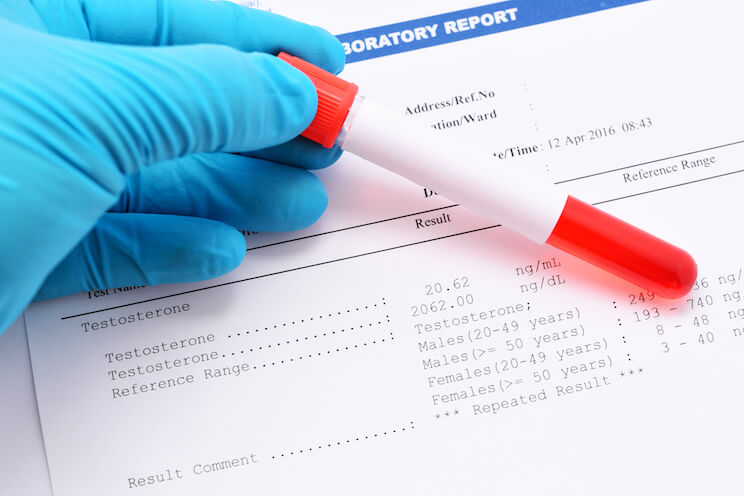
Your body uses it to:
- regulate sex drive and function
- maintain and grow muscles (protein synthesis) (26)
- keep bones healthy and dense (27)
- grow hair (28)
Why Testosterone is Important for Good Health
You can probably guess most of the symptoms of low testosterone based on the functions it’s used for. If you have low testosterone, you’ll likely have a low sex drive, an inability to grow muscle significantly, and weaker bones.
The bone issue is very prevalent in the elderly.
So what causes low testosterone?
One cause is chronically elevated cortisol. It also suppresses testosterone production (29).
In addition, low-fat diets also reduce testosterone levels. On average, study patients on a low-fat diet for 8 weeks saw a 12% reduction in resting testosterone (30)(31).
Testosterone and the Paleo Diet
The Paleo diet and lifestyle is set up quite well when it comes to producing and maintaining a healthy level of testosterone.
Occasional sprinting and heavy lifting are part of a Paleo lifestyle and help increase testosterone (32).
Remember that you want to avoid constantly elevating cortisol levels. This means you need to relax, but make sure you don’t overtrain as well.
In addition, our Paleo ancestors spent a decent amount of time in the sun. It turns out that sufficient vitamin D (from the sun) maximizes testosterone (33).
Finally, let’s look at nutrition. It’s very difficult to design a realistic Paleo diet that is low-fat, which is good for testosterone production. Both saturated fat and monounsaturated fat are both necessary for healthy testosterone production. To a degree, the more of each fat you consume, the higher your resting testosterone levels (34).
The Bottom Line

Following a Paleo diet and lifestyle is a great way to improve your hormone function or maintain it.
Have you ever struggled with hormone resistance or deficiency? Let us know how it worked out with a comment below.
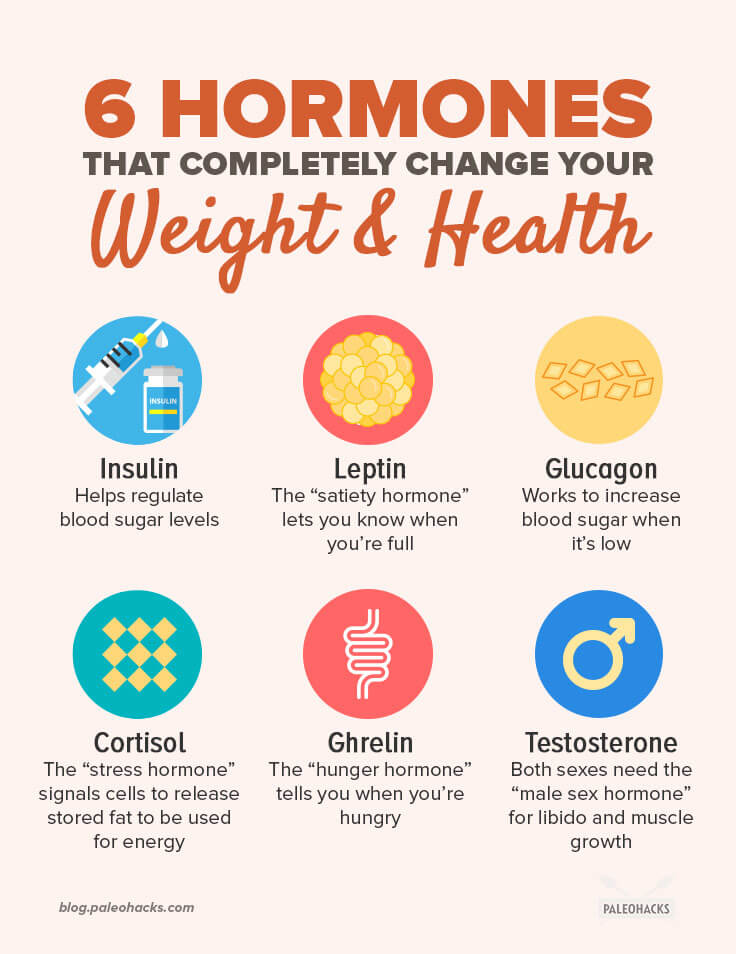


 Paleo Spicy Orange Chicken
Paleo Spicy Orange Chicken


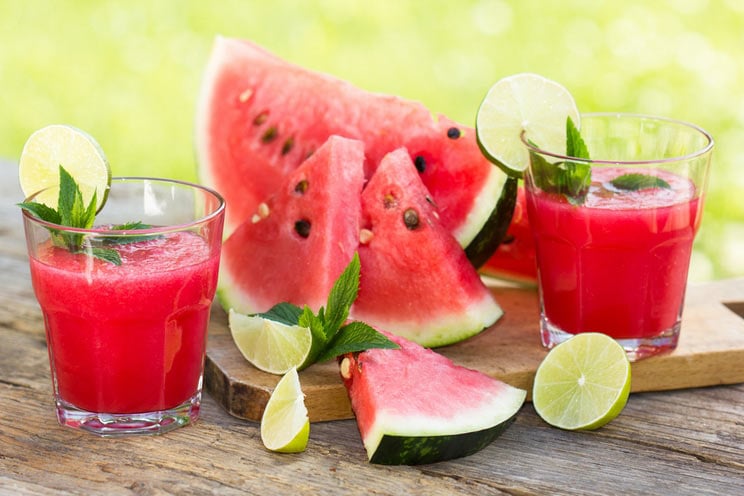
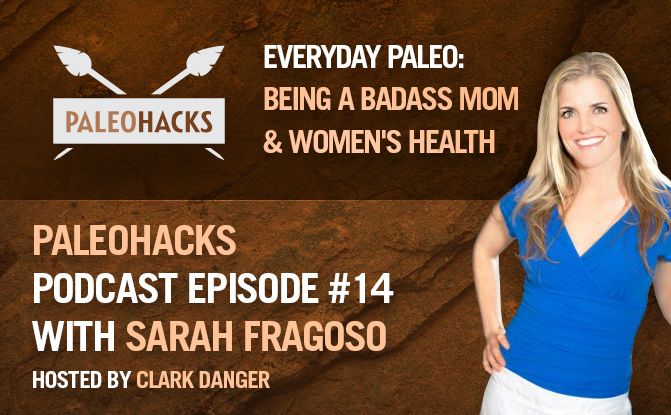

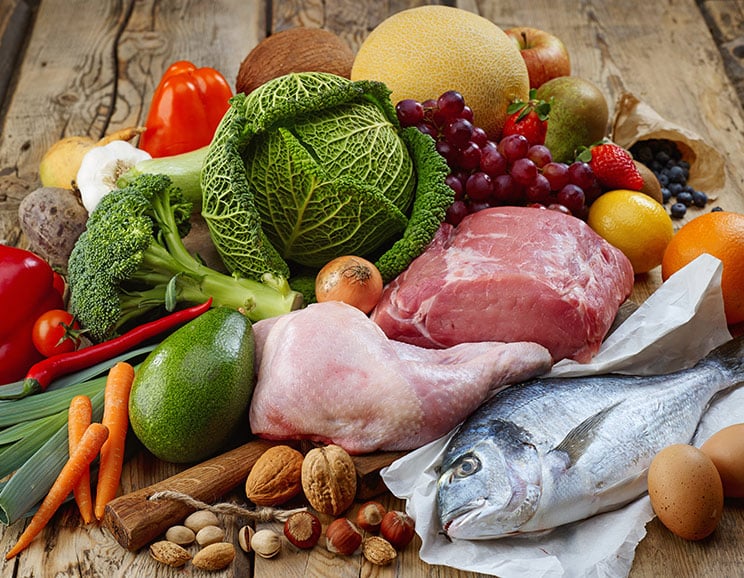
Show Comments